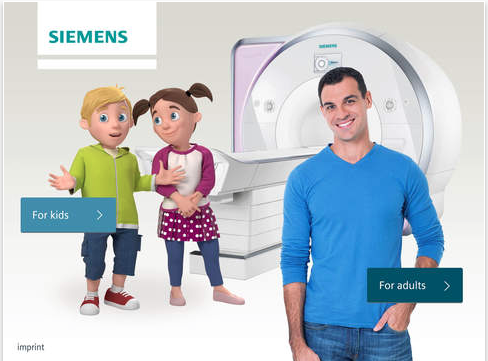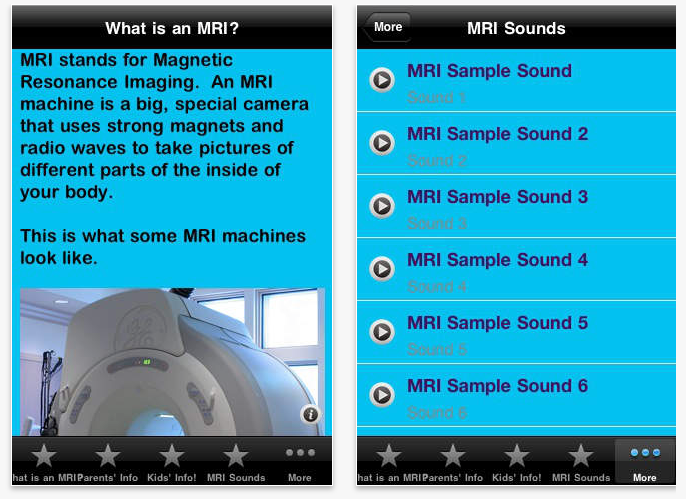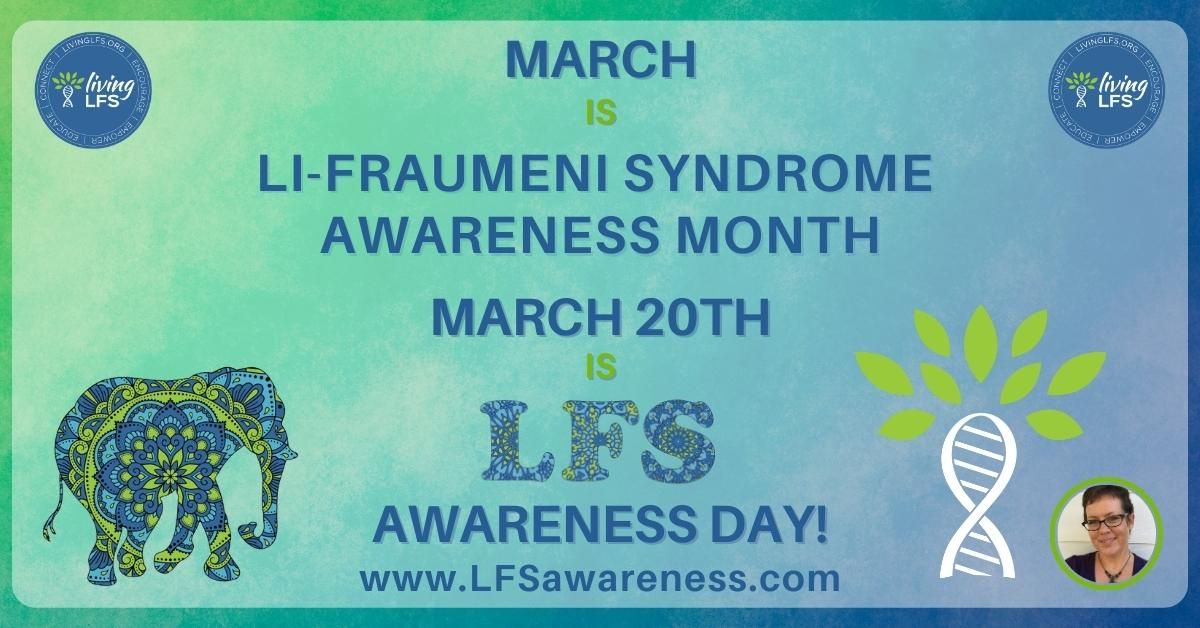Since Li-Fraumeni Syndrome cancers can pop up just about anywhere in the body and at any age, screening can be a bit of a challenge. There are studies currently being done to see if whole body MRI is reasonable. Preliminary studies show that people with LFS do tend to grow lots of lumps and bumps and not all of them are cancer. Part of the research conundrum with MRI screening is finding what to follow up on and what to wait and watch. We do know that catching cancer early leads to more effective treatment and potentially cure. Many times it is the best practice to find the balance between early detection and false positives. False positives can create a lot of stress and extra time and cost to follow up.
Since we are sensitive to radiation, Magnetic Resonance Imaging can be used when possible for screening those with LFS. If you are curious about how MRI works, check out our previous blog MRI 101. There are benefits to using CT or PET/CT for diagnosis and it is always a good idea to talk to your doctor if you are concerned about radiation exposure. To learn more about the differences between MRI and PET, you can read the blog post HERE.
All of that theory aside, sometimes kids have to have scans, whether it is for injury or routine screening, the process can be frightening for a young child. I am an adult and still get scanxiety. If full body MRIs are going to be a part of your child's routine, it is helpful to have positive experiences to start with. Many hospitals have Child Life Specialists who are trained to help your child have a better experience and ease some of their fears. If you have a child who seems to be nervous about the experience, do not hesitate to ask if your hospital has a Child Life Specialist. There are even hospitals that have mock MRI suites. For many of us in remote locations, our hospitals don't always have these resources, but there are some things we can do to help prepare our kids for MRIs.
Always be honest with your child while giving them age appropriate information. A 3 year old can't possibly understand screening for cancer, but they do know that they have to go to the doctor for physicals and get their teeth cleaned a couple times a year. Having an MRI for screening is like that. There is a special machine that can see inside parts of us that the doctor can't see. As kids get older, I let their questions guide our conversations. I talked to a couple Genetic Counselors at the 2016 REACH LFS Conference who are working on resources for this, how to talk to your child about LFS and screening. Until those resources are available, I will share with you some of the tips and resources I've heard about through our child life specialist and our support group to help kids with MRIs. Here is a useful link to information from the University of Chicago Children's Hospital on preparing a child for MRI and when to prepare them based on their age.
pdf from UChicago Kids Hospital
This is a great introductory video for kids about MRI from our friends at Nationwide Children's Hospital.
Many young children are sedated for MRI's because they cannot hold still enough to get good images. With some practice at home and preparation, many kids can get through MRIs without sedation. It is always best to talk with the doctors at your hospital or facility about what they recommend for your child. Some MRI machines have headphones to listen to music, others even have goggles to watch DVDs on. The full body MRI series for LFS can take a couple of hours, which my kids usually count as one movie and part of another. Some people like to get the entire MRI over with in one session, others have it split up into multiple visits. If your facility does not have music or goggles, it is good to talk to your kids about techniques to use while in the MRI. Some kids pretend they are in a spaceship blasting off and think about all the planets they will visit and the aliens they will meet, others think of it as being on a ride at Disneyland and imagine walking around the parks. Some think about their favorite books or building legos. My girls used to practice by laying under the desk and making loud noises at each other.
Getting an MRI does not hurt. There are times when contrast is used to help the doctors see better inside the body. Remember those blue pills you used to chew at the dentist to see how well you brushed? The contrast helps the MRI take better pictures and the best way to get it inside our body is through an IV. This is my kids' least favorite part, the injection for contrast. Usually if contrast is ordered, the technicians will place an IV in before the MRI even begins. There are numbing creams that can lessen the pain, but often this is the scariest and worst part for kids.
There are several apps available online that replicate MRI sounds and talk about the whole MRI process. There are also many videos with sounds on YouTube. Here are a couple of ones we've used.
SIEMENS MRI APP-ipad

This app is free on iTunes and has a lot of fun features. One down side is it only available for iPad. There is a google play version. The app has a checklist, what to wear, cartoon friends that answer common questions and help kids prepare. It shows how the machine works and the noises the MRI makes. It even has a 360 degree view so you can see what it looks like from inside the MRI. This would be great for a practice run through at home. There are example MRI images that my daughter was excited about and that she could pick objects to place in the MRI and see what they looked like.

This app is $1.99 and very basic. It has simple graphics and easy to understand information about an MRI. It has 6 different variations of the sounds that MRI machines make. This was the app our Child Life Specialist uses, so I know she uses it over and over. It is available on iPhone and iPads.
Living with LFS presents a lot of unique situations for adults and kids. We hope that some of these resources help having an MRI a little bit easier so you and your kids can get back to living.
Resources
https://700childrens.nationwidechildrens.org/helping-children-parents-prepare-mri/
